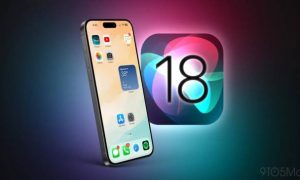Location tracking on smartphones is no longer an unknown activity – it is, in fact, a major privacy concern. Location tracking nowadays is such an all-pervasive affair that privacy advocates have often spoken out about how it is no longer a question of if, but how your smartphone’s location data is being used to track your location in near-real time accuracy. A recent directive by USA’s National Security Agency (NSA) acknowledges this threat, and has suggested steps that can be taken to mitigate, to an extent, the threat posed by smartphone-based location tracking.
In a guideline document titled ‘Limiting Location Data Exposure’, the NSA has underlined how mobile devices use a combination of GPS sensors, connectivity modules including Wi-Fi, Bluetooth and cellular data, and shared data generated from online browsing by users. It details how location information history stored in a device can also be procured by anyone tracking a user, and use all of this data to approximately predict future locations of a person. On this note, the NSA has acknowledged the security threat that using a modern day smartphone represents, and issued key safety steps that you can take, if your smartphone has information that can be deemed sensitive and critical.
The key security steps as per NSA are:
1. Disabling location service settings on device
2. Disabling Wi-Fi and Bluetooth when not being used
3. Using Airplane Mode whenever possible
4. Restrict location access to installed apps
5. Use the least possible apps that take your location data
6. Disable ad tracking by turning off cookies
7. Restrict third party ad tracking while browsing the internet
8. Reset the advertising ID linked to your device, to throw off anyone tracking your footprints
9. Turn off location trackers (such as Apple’s Find My)
10. Disable location data tracking on browsers
11. Use VPNs as much as possible
12. Reduce any location data you store voluntarily in cloud storage folders
13. Strategically select non-sensitive locations to access sensitive data on your device
The NSA has further affirmed that location data can be tracked even with GPS sensors disabled. Describing this, the document says, “Even if cellular service is turned off on a mobile device, Wi-Fi and BT can be used to determine a user’s location. Inconspicuous equipment (e.g., wireless sniffers) can determine signal strength and calculate location, even when the user is not actively using the wireless services. Even if all wireless radios are disabled, numerous sensors on the device provide sufficient data to calculate location. Disabling BT completely may not be possible on some devices, even when a setting to disable BT exists. When communication is restored, saved information may be transmitted.”
The body has further stated that it is not just about GPS sensors, suggesting that IoT devices linked to your email addresses, as well as social media apps, can give away critical location information. The guidance comes as an official acknowledgement of the level of surveillance that is scraped off smartphones, and underlines the key steps that you as a user need to take to at least reduce how you can be tracked based on just your smartphone.



































